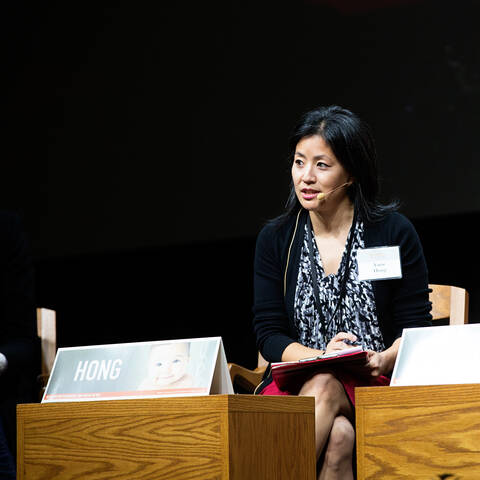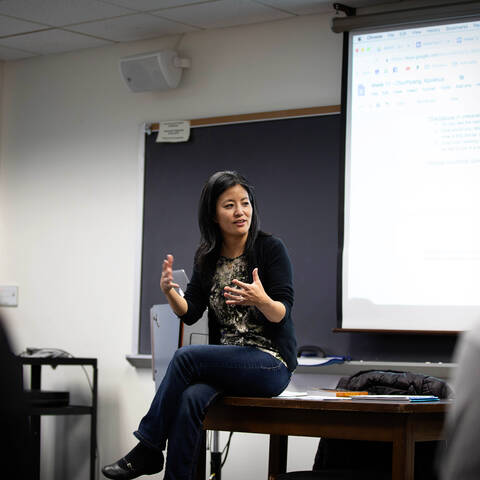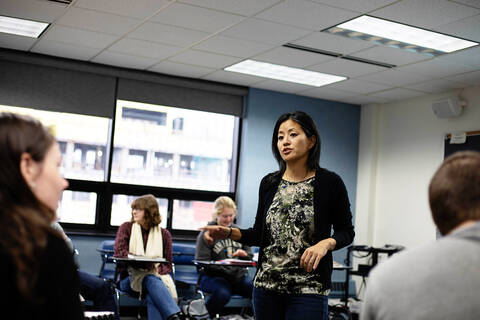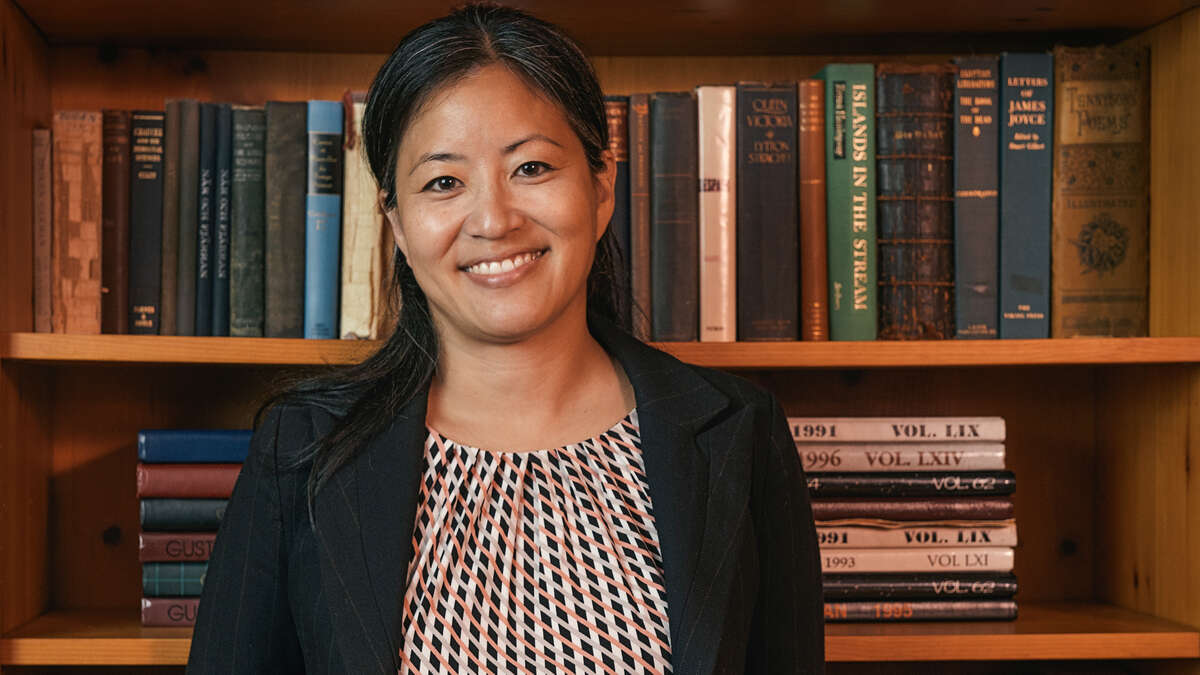Education Matters
Bridge
Professor Yurie Hong teaches in the Classics department and often shows students how ancient Greece and Rome continue to be relevant to our understanding of contemporary challenges. Yurie says that, “One of the most valuable aspects of studying ancient culture is that students come into contact with experiences, perspectives, and worldviews that may be very different from their own. This practice of understanding across difference can have profound impacts on students’ daily lives as well as their future careers.” She gives an example of a student in her Homer class, who was a Classics and Psychological Sciences double major, who said that his close reading of the Iliad in Greek and class discussions about ancient heroism, combat trauma, and male and female experiences of war had inspired him to focus on treating PTSD as a therapist.
As a professor she sees her role as both personal and professional. “One of the things that drew me to Gustavus is the fact that the College places its core values front and center. “The values of justice, excellence, community, and service have been particularly clarifying for me in my personal life as well as in the classroom. They set a high bar that I constantly have at the back of my mind. In class, these values allow me to initiate the hard conversations that we, as a society, need to be having. For example, because Gustavus identifies justice as one of its core values, I can go into the classroom and help students think about the early Romans as both refugees from Troy and colonists of the Italian peninsula. And then I can ask them to consider the fact that settlers of our own region in Southern Minnesota were both immigrants seeking a better life as well as beneficiaries of stolen Dakota land. What would be the just way to engage with these histories? How do we, as a community here at Gustavus, try to serve the cause of justice through the things we study and the actions we take in the world? These are complicated questions,” Yurie notes. “Gustavus’ core values don’t simply open the door to these conversations. They say that we must engage in these conversations.”
“I want to build a bridge between ideas and individuals and the communities.”
Bridging worlds, roles, and disciplines is important to her. “One of the things I love about Gustavus is the opportunity to build relationships with colleagues all across campus, from Biology to History to Communication Studies and Health and Exercise Science. I may specialize in ancient Greece and Rome, but my interactions with colleagues from many different disciplines enriches my own classes and deepens my awareness of connections students could make between all the different classes they’re taking. It makes me a better teacher as well as a better mentor for students as they consider how to integrate their academic experience into their lives after graduation.”
In her teaching and in her life Professor Yurie Hong wants to communicate that teaching and research matter in the world and can inform how we chose to treat each other. “I want to build a bridge between ideas and individuals and communities. I feel firmly that it’s all connected. In order for ideas to matter, they have take root in individuals who will take them out into the world,” she says. Two years ago, Yurie started a community organization that works for equality, inclusion, and democratic ideals. Through community dinners, social media, and advocacy events, she helps people make the immediate connection between national issues and local activism and provides them with opportunities to get involved. “If you’re concerned about immigration and refugee issues nationally, we have immigrants and refugees right here. We can get involved in tutoring programs and voter education programs and call our representatives about the issues that matter to us. We can all play a part in creating a welcoming community that we want to be a part of.



She believes in six degrees of separation—the idea that any two people on earth are only separated from one another by six degrees (or less). “There’s always a way to make a connection between things that seem really unrelated at first. The ability to make those connections is what enables people to adapt and to come up with creative and collaborative solutions. My goal is to help students make those connections—between people, cultures, and ideas. That one class on ancient medicine might help you think differently about your relationship to your doctor or patient; that unit on power dynamics in ancient Rome might help you understand office politics as a CEO; or that project on sexual assault in Greek myth might inform your understanding of trauma as a social worker. No matter what you do, your life and your work will be enriched if you can make those connections.”

